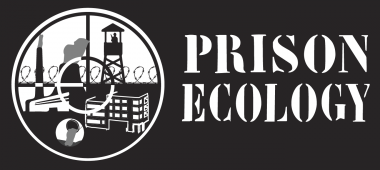
The Prison Ecology Project addresses issues such as: damage of sewage and industrial waste from overpopulated and under-regulated prisons into to water ways; threats to listed species by the ongoing construction and operation of prisons in remote, environmentally-sensitive rural areas; and environmental justice concerns regarding prisoners, staff and surrounding communities.
Check out our partners at The Campaign to Fight Toxic Prisons
See original press release from CBD here
For Immediate Release, July 31, 2015
Contact: Lori Ann Burd, Center for Biological Diversity, ![]() (971) 717-6405
(971) 717-6405
Panagioti Tsolkas, Human Rights Defense Center, ![]() (561) 360-2523
(561) 360-2523
Kentucky Prison Project Opposed Over Threats to Endangered Wildlife, Water and People
LETCHER COUNTY, Ky.— The Center for Biological Diversity and Human Rights Defense Center today sent letters urging the Kentucky Department of Environmental Protection and Department of Fish and Wildlife to oppose a new maximum-security prison in Letcher County.
The federal Bureau of Prison’s draft environmental analysis revealed that the new prison could subject surrounding communities to the prison’s wastewater discharges and likely expose prisoners to contaminated water. The new prison could also destroy about 700 acres of habitat for wildlife, including habitat for two federally endangered bat species and dozens of state protected species. A final environmental impact statement is expected by the end of the summer, according to a statement from the BOP.
“Kentucky’s leaders need to take a stand to protect forests, waterways and wildlife from this sprawling new prison,” said Lori Ann Burd, environmental health director at the Center for Biological Diversity. “These endangered bats give us crucial ecosystem services by controlling insects, and this project could destroy the little habitat they have left.”
In addition to the federally protected bats, the project may harm dozens of state protected species, including the eastern hellbender, Kentucky red-backed vole and sharp-shinned hawk.
“Instead of spending half a billion dollars to construct a new facility that will create hazardous conditions for people and destroy wildlife habitat, we need to reform our prison system,” said Panagioti Tsolkas, director of the Human Rights Defense Center’s Prison Ecology Project. “We hope Kentucky’s state agencies will oppose this project in order to protect the well-being of the public and the environment.”
Earlier this month 93 social justice, environmental and prisoner’s rights organizations sent a letter to the EPA urging the agency to include the 2.3 million people incarcerated in the United States in its “Environmental Justice 2020 Action” agenda. The letter illustrated a clear need for the EPA to consider prisoners as a population that faces extreme environmental justice impacts, including incarceration in unsafe facilities like the one proposed for Letcher County, which would be built on a mountaintop-removal coal-mine site.
The Human Rights Defense Center, is a non-profit organization dedicated to protecting human rights in U.S. detention facilities. HRDC’s Prison Ecology Project has been conducting extensive research, public records requests, interviews and reviews of Environmental Impact Statements and Environmental Assessments to understand how environmental justice criteria has been applied to prisoner populations, and how criminal justice and environmental issues intersect.
The Center for Biological Diversity is a national, nonprofit conservation organization with more than 900,000 members and online activists dedicated to the protection of endangered species and wild places.